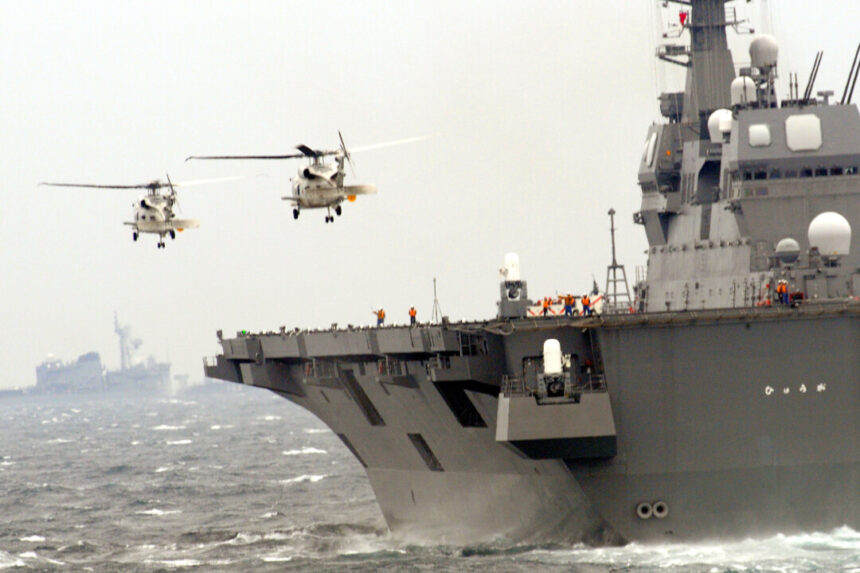Commentary
During the “2+2” security talks in Tokyo on July 28, US Secretary of State Antony Blinken and Defense Secretary Lloyd Austin engaged in extended deterrence dialogue (EDD) with their Japanese counterparts.
While EDD talks between Japan and the US have been ongoing since 2010, this meeting marked the first time they occurred at such a high level.
Extended deterrence involves the potential use of nuclear weapons by the US to defend Japan, a country without its own nuclear arsenal.
Japan sought reassurance of America’s “nuclear umbrella” during the discussion, aiming to prevent nuclear blackmail and deter attacks from neighboring adversaries like China, North Korea, and Russia.
Former Prime Minister Shinzo Abe strongly advocated for American nuclear protection, even suggesting the storage of nuclear weapons in Japan.
Amid China’s substantial military expansion in the past three decades, Japan is increasingly concerned about the regional power balance, especially when nuclear weapons are factored in.
Given China’s nuclear capabilities and North Korea’s arsenal, Japan’s anxiety is understandable.
While the US prefers Japan to trust in their commitment, Japan seeks specific guarantees to address its concerns.
Efforts to alleviate Japanese apprehensions require more than just verbal assurances of commitment—they demand concrete actions to demonstrate the US’s willingness to act.
Japanese Paradox
Japan’s stance on nuclear weapons presents a paradox. Despite being a pacifist nation, Japan maintains a sizable military and relies on US forces for protection against potential threats.
Having been the only country to experience nuclear attacks, Japan advocates for nuclear non-proliferation while relying on the US’s nuclear deterrent.
The trauma of World War II and Japan’s subsequent aversion to nuclear weapons stem from the catastrophic events of that period.
Japan’s reluctance to embrace nuclear armament may be rooted in its wartime experiences and the devastation caused by nuclear attacks.
Today, Japan faces real and imminent threats, prompting a reevaluation of its defense strategies.
A Nuclear Arms Race in Asia?
Concerns about a nuclear-armed Japan triggering an arms race in Asia have long plagued Washington, but the real proliferation threat lies with China and North Korea.
The US’s ability to provide a solid commitment to Japan’s security is crucial in preventing further nuclear escalation in the region.
While Japan may consider developing its own nuclear weapons if US assurances fall short, the implications of such a decision are significant.
Japan’s technical capabilities and experience in rocket technology and nuclear energy could enable it to swiftly acquire nuclear weapons if deemed necessary.
Despite the challenges in guaranteeing Japan’s security, ongoing dialogue and cooperation between the US and Japan remain essential to address mutual concerns and maintain regional stability.
It doesn’t matter who becomes U.S. president in January 2025.
The situation has reached a critical point.
It’s not Japan’s fault. And it may not be a negative development.
If hostile dictatorships possess nuclear weapons, perhaps more democracies should also have them.
Opinions expressed in this article are those of the author and do not necessarily represent the views of The Epoch Times.






